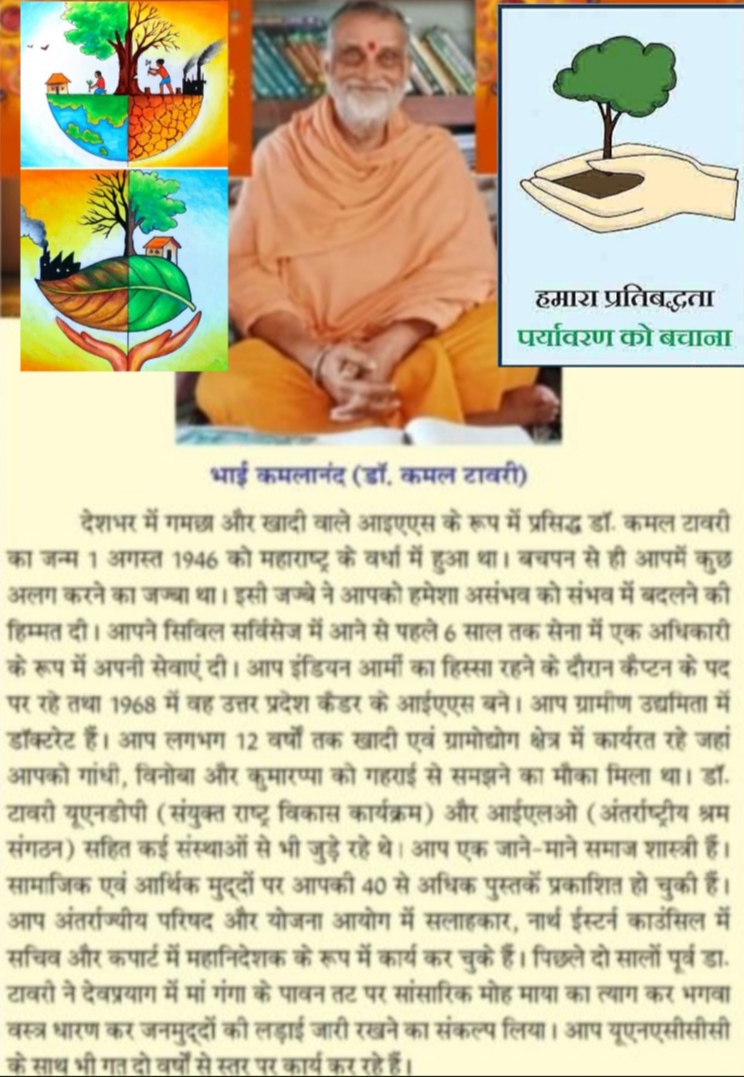Dr. Kamal Taori and Irmel Marla
Q. 1. Why this topic?
We intend to facilitate exploring the unexplored, seeing the unseen, experiencing the not experienced, hearing the unheard, selling the unsold, demystifying the highly mystified, grading the ungraded or wrongly graded, placing the unplaced, rooting the uprooted, positioning the un- positioned, organizing the unorganized, connecting the unconnected (for networking), awakening the dormant, re-evaluate the wrongly valued, localizing the globalized and/or globalizing the localized. All these we do from the angle of “Marketing the Unmarketed”.
Q. 2. Who are the Rationalists and why this approach?
By definition (for example Oxford Dictionary), a Rationalist is “A person who bases their opinions and actions on reason and knowledge rather than on religious belief or emotional response.”
As ardent followers of scientific, rational, analytical approach to solving and understanding problems and all issues, the writers are of the firm opinion that there is the urgent need for this approach. A rationalist is one who does not accept unproven statements.
Therefore, there cannot be an emotional, religious, blind, gullible, sectarian, fundamentalist, narrow-minded, bi-partisan approach to understand a situation or respective conditions.
The rationalist’s approach is must for proper or holistic understanding and clarifying the missing dimensions of marketing the unmarketed India or Bharat.
Our deliberations are meant as strong warnings for those who are still wallowing in the state of denying the obvious, like Global Warming and destruction of environment, and also as a strong appeal to all those who come to the rational conclusion that it is high time to fight the obvious dangers and to join hands with all those striving for a humane society and a livable future.
Our appeal is directed not only to the Indian people but to all mankind.
Q. 3. This article is for whom?
For all those who are action-oriented and committed to a livable future: not only their own future but also that of the next generations, and that too, of all mankind. The dire need for action instead of holding well- intended speeches at conferences, conducting useless studies to fill up space in more and more libraries, is so obvious that we came to the conclusion that the global decision-makers (Industries in shark-capitalism systems and their political lackeys, religiously blinded countries, etc.). that sustainability is not a goal but more and more profit and power. Now, we have to question the mental sanity, if global conditions become there and more unlivable, the decision-makers have done the become themselves. That too, against their better knowledge, at least of some of them. This paper is also meant for them!
Q. 4. What motivates us to write this?
The concerned writers have been working on this subject for decades while trying to muster all empathy to understand the people, and following our interests for analyzing societal phenomena and habits. We fo served and interpreted their vague overall fears, and their fears of disasters because of almost total failures in all fields of so called reforms. Thus, the urge of better understanding by observation and learning from the past grew continuously, and we finally realized that the challenges of our time are greatly neglected. “Development” is perceived as “more and more of everything”, a total consumerist attitude, devoid of concern for holistic development. Still, the impending water crises, erosion, air and soil pollution, making more and more profits by any means, even by exhausting all fossil resources, deforestation, poisoning people through pesticides, etc. continues unabated. This utterly wrong perception of “development”, aggressively marketed by the shark capitalist Western Global Players and World Bank, IMF and UN, is unfortunately deeply rooted in the minds of our politicians, bureaucratic decision-makers, lobbyists and other demers of the dangers already staring in their eyes. It is finally bound to lead to overall destruction. The train towards destriction is already on the move, and it is gaining speed!
The gap between preaching and practicing is continuously widening and it seems, albeit the number of “deniers” may be decreasing because of better knowledge and awareness, but the deniers in powerful positions increse their dominance worldwide
To make an inroad into the mindset of turning the head before obvious dangers, to enlighten (Jago! Jago! awaken!) people about what awaits them if we continue like this, to awaken especially the younger generations about what they urgently have to take up as actions against a certainly unlivable future this is what motivates us.
Q. 5. What are the contours/dimensions of Marketing the Unmarketed India?
Before taking up the analysis of this, let us understand Marketing Unmarketed, or Marketable, is different from sale and saleable, and niso from unsaleable, for that matter. Marketing has a holistic, all- encompassing, integrated meaning. It means understanding the product the process, the price, the customer, the time, the need, the packaging, the positioning, the agency, the publicity, the consumer satisfaction, the gaps in pricing and profit, the shareholders’ aspirations, and the role of the competitors, etc.
Now, let us explore “Un-Marketing the (already) Marketed”, Due to ignorance, faulty notions, lack of or wrong interpretation of experiences, to compartmentalized exposure and thinking, teaching, duties or job assignments, and the subsequent “Tunnel Views” change is made impossible. Also, the hierarchically dominated (boss-centric) evaluation and grading methods, the superficiality and non-inclusiveness of development concepts further aggravates the situation. In short: by repeating the same mistakes over and over, the mostly corrupt decision-makers benefit while the masses are further exploited. All this happens because of the deeply entrenched, endemic compartmentalization which allows that the wrong and inefficient, corrupt measures and concepts are marketed and thus can be continued with impunity.
The bitter reality of the complete picture requires a holistic understanding. We all know the story of the elephant being explored by 6 blind men. As per their touch, they defined the Elephant only as the respective part they touched and thought they identified. They were all correct in their own way because of their experience by touching (tail as a rope, leg as a pillar, belly as wall, tusk as a solid pipe, trunk as a tree- branch, ear as a hand fan), but were all wrong in defining holistically the object as an elephant. This clarifies the need for un-marketing the marketed in a holistic way.
Q. 5. A What negative factors of global marketing measures have to be holistically analyzed, or where do we have to put the finger on?
1. Overall phenomena at national level
Corruption, political and religious intolerance, superstitions, greed, paid media, outdated educational structures, reservation system, Marketing the gulibility, inferiority complex (trying superficially craving for name, fame, reputation, position, staan and envy and suspicion, etc.) are comion features FunhaTTER exploitation, manipulation (through so called social media), viολακι (physical, verbal, psychological, economical, political gender-specific, Bled corruptive systems, lack of (inconsistency), inhuman ideologies (fascism, etc.), and greed are ali componente resources to
There are regional variations to be considered, like caste system (the be observed. same as class system in other countries).
2. Global, but also geo-politically or “culturally” restricted
religious fanatism, terrorist activities, poverty, begging, dirt and lack of hygiene, corruption as normalcy, gender discrimination (rap domestic violence, discrimination in education and under the laws. eeader-specific exploitation, inhuman rituals like female genital genderism (all over the Muslim world, even in specific pockets mutilatio further, the over-domination dermoenten, interests in the cynical disguise of “values”, or “freedom and democracy”,
3. Leadership issues
One of the problems cropping up in the context of “Marketing the Un Oneted” is the skewed perception of “Leadership”, not only in India but also globally. It is not about competency and character, but about very doubtful measures. Unfortunately, persons don the mantle of being a leader only because they have a) ‘inherited’ the position (“dynasty syndrome”), b) bribed themselves into a leadership position, c) forced themselves into it through threats and financial dominance, d) followed a given career path with opportunism, e) manipulated himself into it, f) using fake credentials, etc.
Coming back to the question of “Marketing the Unmarketed”, especially in the context of diversity, we have to ask for all those items which were as yet overseen by the majority of the historians and other scientists. Thus, it could contribute greatly to better understand the history of mankind and also, to a give guidance to a more rational and peaceful world. Ancient wisdom applicable today is hardly unearthed but could show how to protect the environment and save plants, animals – humans, too from extinction. Western historians have focused mainly on Middle and Far East countries in spite of the fact that Indian Civilization dates back nearly 6000 years from now (Indus Valley Civilization.)

